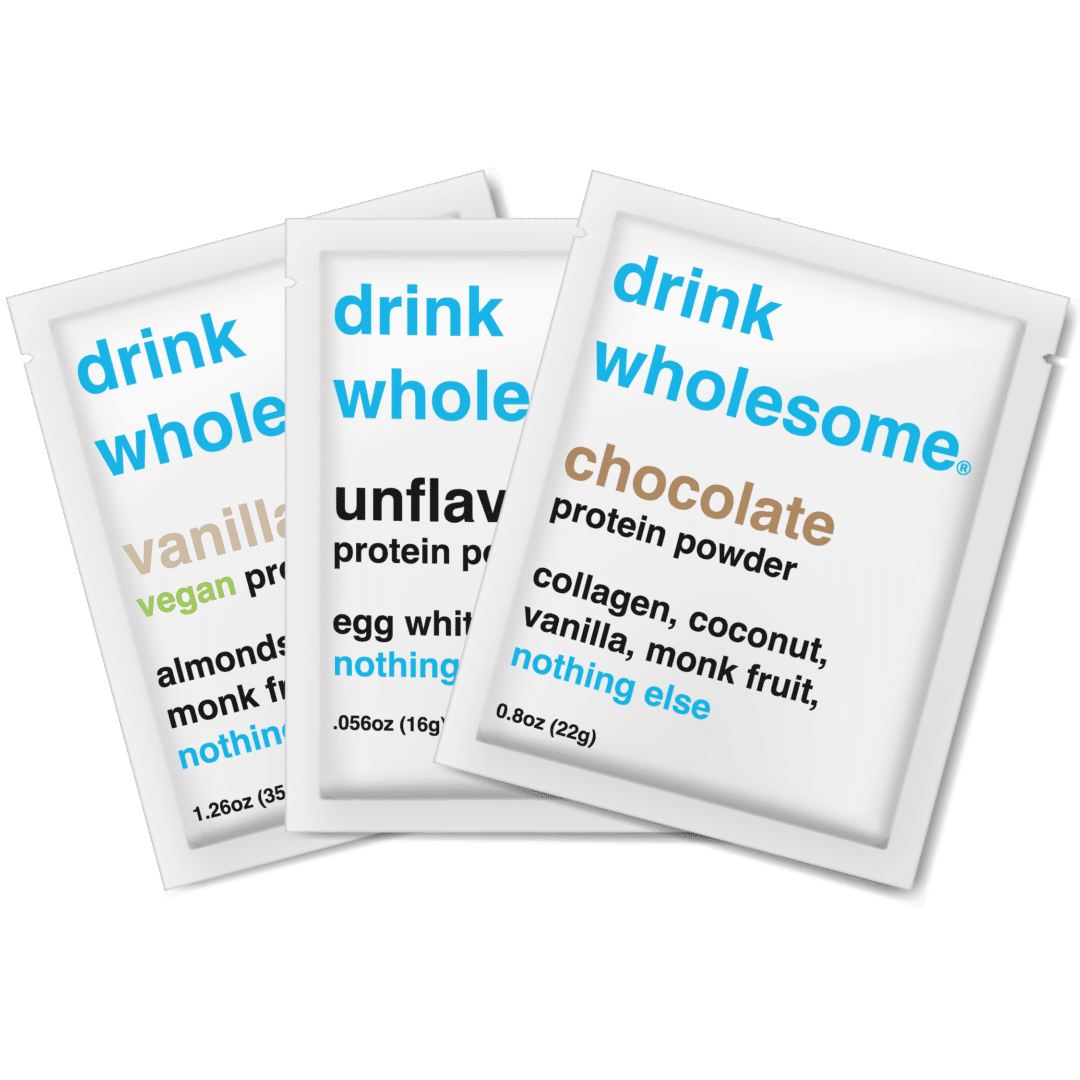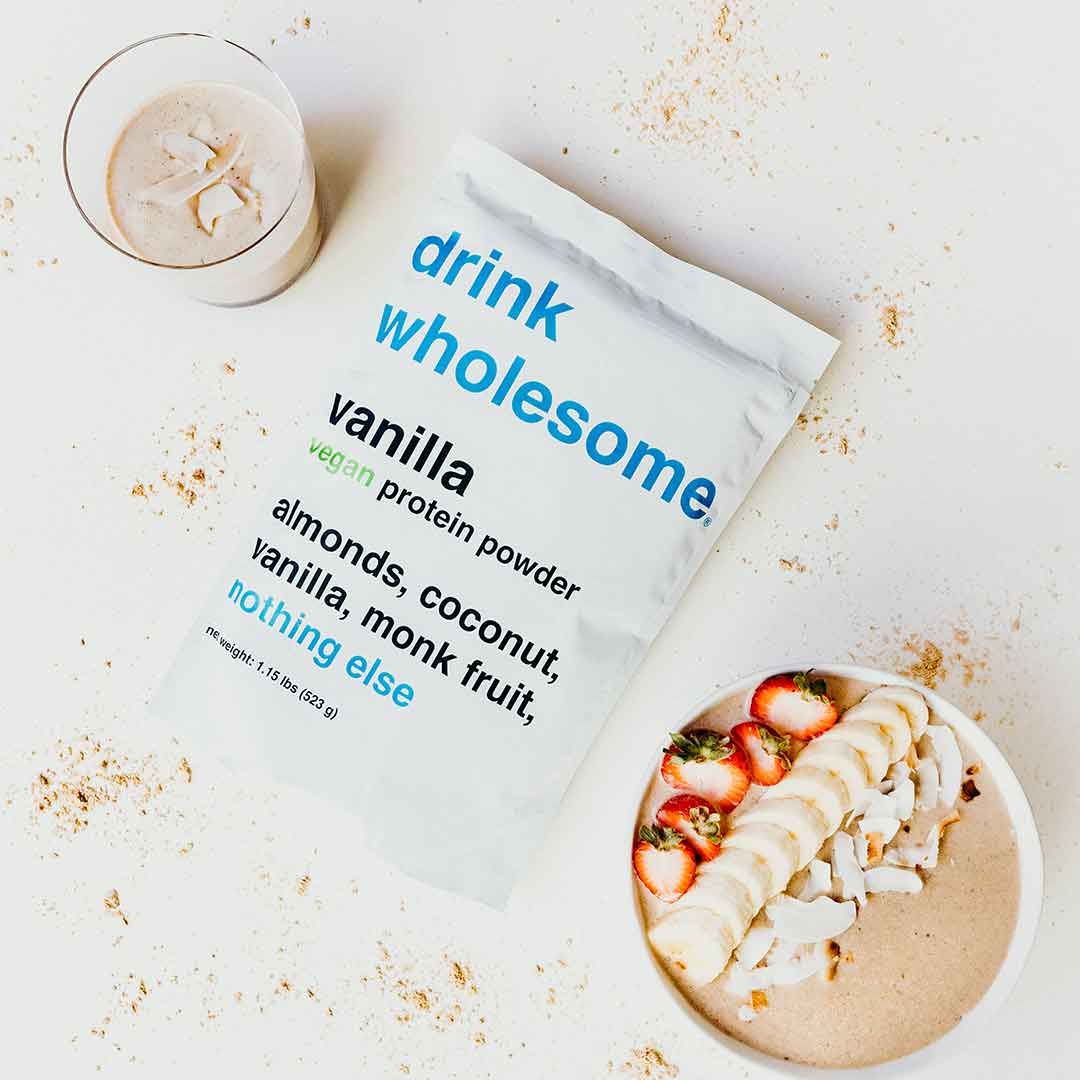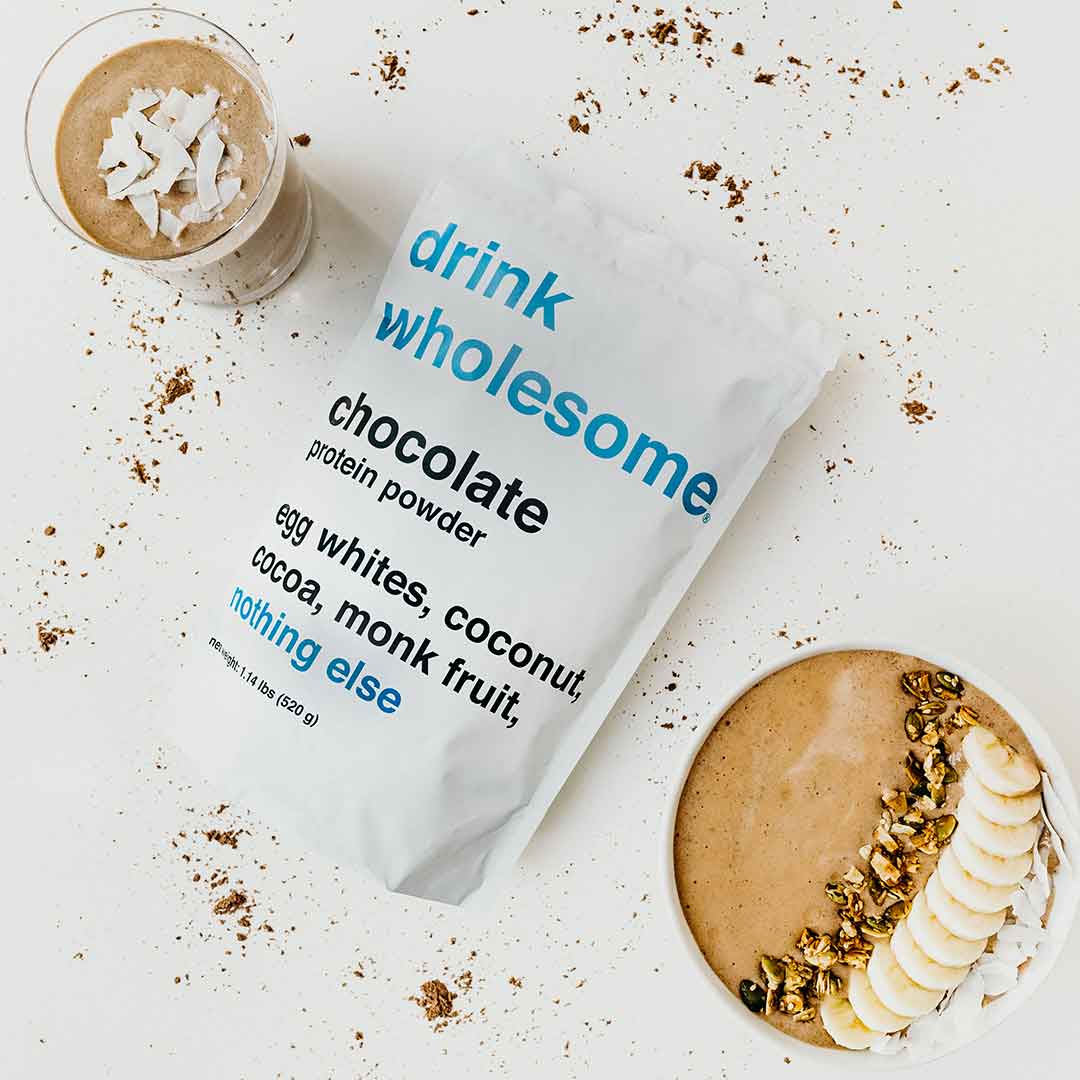drink wholesome is the best easy to digest protein powder.
Written by Jack Schrupp & endorsed by Baylee Reller, RDN
What does easy to digest mean?
Digestion is the complex process that turns the food you eat into nutrients (fats, carbs, protein, etc.) that can be absorbed and used by the body. The term bioavailability is used to describe how easy a food is to digest, and is often used when talking about dietary protein. Some dietary protein sources are more bioavailable (easier to break down and absorb) than others, which can be quantified using the protein digestibility-corrected amino acid score (PDCAAS).
In case you forgot what you learned in high school biology, amino acids are the building blocks of protein. There are 20 of them, 9 of which are essential. Essential amino acids cannot be made by the body, and must come from food. Proteins that contain all 9 essential amino acids are called complete proteins,
A PDCAAS compares a protein’s amino acid composition to its bioavailability. Protein sources like egg and whey have a PDCAAS of 100%, meaning they are complete proteins that can be easily broken down and absorbed. This is special; not all proteins are complete, and not all complete proteins are easy to digest.
Although the bioavailability, amino acid profiles, and PDCAAS of dietary protein is interesting, it is not something the average person has to worry about. As long as you eat a balanced diet, you are getting all of the amino acids that you need.
This is why the rest of this article will focus on another interpretation of the term “easy to digest” – less likely to cause gastrointestinal (GI) side effects like bloating and diarrhea. This is a relevant question when it comes to protein supplements, as the average protein shake and powder can wreak havoc on your digestive system.












